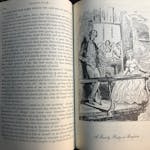While scarcely an original observation, actor Sir Michael Caine still nailed it in 2017 when he said, "Comedy is harder to do than drama. You can make anyone burst into tears, but trying to get a laugh is murder." I recalled this truism as I read Andrew Sean Greer's technically accomplished, wildly entertaining "Less Is Lost," the sequel to his Pulitzer Prize-winning novel, "Less." Like its predecessor, the new novel is a feat of wit and brio, tougher than it looks.
In "Less" the middle-aged protagonist stared down his demons — and his former boyfriend's impending nuptials — by exiting east, New York to Europe to Africa to Japan, accepting invitations to conferences, literary retreats and a lucrative magazine profile.
"Less Is Lost" picks up just months later. After the taxing death of his friend and first lover, an elderly poet, Arthur faces a mountain of debt. He could lose his homey San Francisco apartment. He reverts to a familiar strategy: he'll canvass the nation for paychecks in a camper named Rosina, accompanied by a pug, Dolly, only now within "this foreign world, his own country."
Arthur treks across three time zones to a Maine rendezvous with his partner, Freddy Pelu, an academic (who'd called off his wedding). From his New England perch, Freddy narrates hilarious, cinematic scenes that include affectionate if campy portraits of Arthur: "Look at his thinning hair wind-whipped into the stiff peak of a blond meringue, his delicate lips, sharpened nose, and elongated chin recalling Viking invaders of the Bayeux Tapestry, as white as a white man can get."
Greer's a master of the picaresque, deftly moving his protagonist from a seedy, David Lynch-esque desert bar through the flatlands of Texas to a Southern theater troupe. In his native Delaware, Less' sister awaits him, possibly with the father who abandoned them both, and, farther north, his partner. But will Freddy embrace Less?
Greer's wordplay is glorious: He drop-shots puns and ripostes, firing up his prose. (One bit of dialogue pays homage to the iconic Abbott and Costello routine, "Who's on First?") Less speaks German, perhaps not as fluently as he believes; Greer translates a laugh-out-loud encounter with German tourists at a hot springs in Arizona.
Is "Less Is Lost," then, greater than, lesser than, or equal to "Less?" Is more of Less less or more? The jokes write themselves, which may be a problem here: Greer is not only winking at the reader, he's winking at himself. Although an agile stylist, he's captivated by the cadences of his own voice, the web of Less' relationships, and an unpersuasive reckoning.
The author's gifts are manifold, though, and "Less Is Lost" finds its path, holding tight to a Kerouac-like exuberance even as Less falls short of the enlightenment he seeks. And despite the novel's self-conscious moments, Greer bears down on his character's quest with a command of craft second to none. Will love conquer all? As Freddy notes, "Well, reader, I will simply let you guess."
A contributing books editor for Oprah Daily, Hamilton Cain reviews for the Star Tribune, the New York Times Book Review, the Washington Post, and the Boston Globe. He lives in Brooklyn.
Less Is Lost
By: Andrew Sean Greer.
Publisher: Little, Brown, 272 pages, $29.





